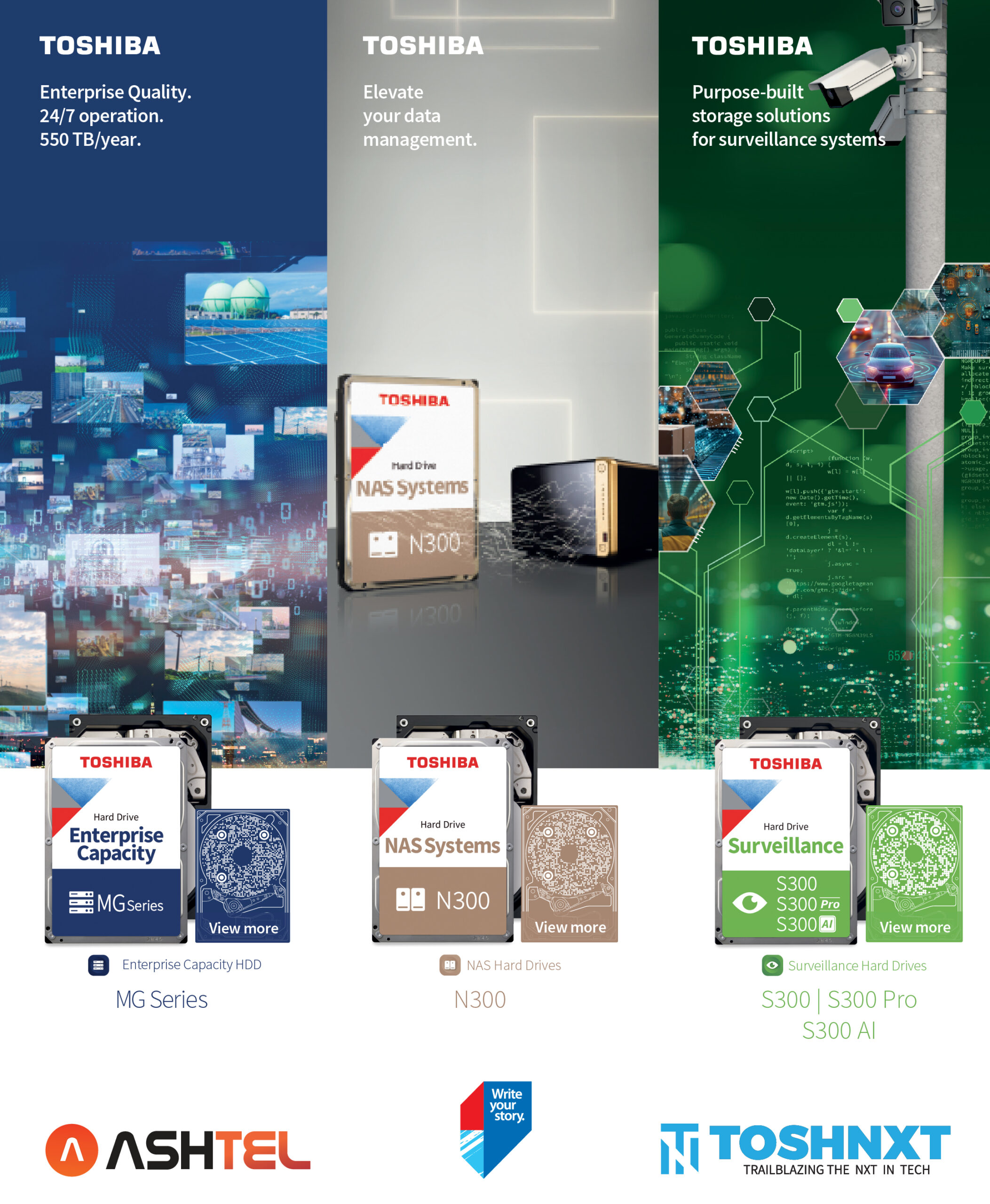Driving the industrial shift to intelligent operations

Jesus Hernandez, Senior Vice President – EMEA at AVEVA, shares how the company’s cloud-based CONNECT platform, intelligent alert monitoring, and AI-powered industrial intelligence are enabling organizations to optimize performance while reducing their carbon footprint.
Discuss how the CONNECT platform is helping energy and industrial enterprises optimize operations and accelerate their sustainability goals?
As an open and neutral cloud-based and AI-infused digital platform spanning the entire industrial lifecycle in real time, CONNECT offers native data services, visualization services, modelling and analytics capabilities, application development services, as well as service and usage management. It brings together data, the digital twin technology, industrial artificial intelligence, and deep domain expertise. By combining remote assets, applications from AVEVA, and 3rd-party data sources into one single, secure platform, CONNECT creates a unique industrial ecosystem calibrated for game-changing innovation. This is precisely how CONNECT enables industrial enterprises to make the most of their technology investment as it drives enhanced efficiency, productivity, and sustainability for companies, their partners and customers.
ZGlobal, a California-based consulting firm, is a good example to describe how CONNECT can be used to achieve sustainability goals, closing the gap between insight and emissions reduction. ZGlobal uses CONNECT’s cloud-based data-sharing solutions to consult and contextualize in real time insights from across their solar power ecosystem. Tangible outcomes include enhanced transparency for both the company and their partners, thousands of dollars saved, and thousands of metric tons of carbon emissions avoided—all while enabling the clean energy transition.
How is AVEVA helping organizations optimize datacenter performance while reducing their carbon footprint?
AVEVA has developed an Intelligent Alert Monitoring system for datacenters that was launched in October at the Schneider Electric Innovation Summit.
Data centers have some challenges when dealing with situations like power loss or failure to maintain specific temperatures as they are tied to service level agreements. When such situations occur, it is critical for the maintenance crew to be able to resolve such situations as fast as possible.
In case of a data loss in a data hall, traditional SCADA applications will show a screen where the device-configured traditional alarms appear in a tabular form. Due to the volume of granular alarms, this method is not suitable to support the maintenance technicians in finding the root cause of the problem. Other visualization methods such as system layouts come with similar complexity. That’s why AVEVA has introduced the concept of Intelligent Alert Management. The goal is to significantly simplify the information related to the situation and guide the crew with knowledge-based insights to resolve the situation. Smart visualization drives the workflow of the maintenance crew or the operator. Targeted messages or emails are sent with just the necessary amount of information to drive action. If needed the system can interact with the SCADA alarm management system to supress unnecessary noise. Furthermore, the system delivers smart visual elements to help depicts the severity of the most critical active alert in a location and guide the response procedures or steps that should be followed.
Information alerts can be associated and mapped to announce whether a data centre in a country could affect the stability of a power utility service.
How does this work? If one of the conditions from the defined intelligent alert management scenarios is triggered, visual and audible alerts are notified to identified subject owners. Instead of the overwhelming traditional alarm grid, they’re presented with a simple-by-design action board which follows the format of a Kanban board, a well-known and efficient lean manufacturing management method. Maintenance technicians see the alert posted by the support operator and can access additional issue details and potential root causes to the problem. From a potential list of suspect equipment, the maintenance technician can mark the one found to be the root cause of the issue and add additional comments as deemed necessary. Whether the issues are electrical, mechanical, or communications related, history of incidents can be viewed easily as well as performance KPIs to help drive continuous improvement measures.
This is a reactive scenario when the team needs to react to an event that has just occurred. The Intelligent alarm management system also caters to predictive scenarios that employ AVEVA predictive analytics solution. If a pattern arises outside the prediction algorithm, AVEVA’s intelligent alert monitoring system will trigger a notification. The notification severity will then fall under a maintenance priority but nonetheless, will help operations avoid loss of uptime or performance. Just as in the reactive scenario, the entire operations team will achieve more efficient resolution of issues and avoid penalties from the data centre vendors.
It is clear that AVEVA helps organizations optimize datacenter performance by providing the operators with full- lifecycle visibility of assets through a digital twin. For example, Etisalat’s digital twin acts as the single source of truth for one of their facilities, unifying electrical design with real-time operations and future expansions.
How does AVEVA ensure that the approach to automation and AI remains human-centric?
Industrial operations are using AI to optimize processes, reduce waste, and improve energy efficiency, and those applications will only expand. By harnessing intelligent algorithms to analyse and adjust energy usage in real time, enterprises can significantly cut their carbon footprint while maintaining productivity and profitability.
Technology’s power lies not just in automation but in its ability to support human-led decision-making for a sustainable future. In our software, AVEVA embed AI as a technology that helps human make AI-enriched decisions. When using our software, the human remains in the driving seat to accept of reject recommendations from AI.
Discuss how AVEVA is enabling companies to unlock actionable intelligence from their data to drive smarter decisions and greater operational resilience?
For industry, delivering life’s essentials is the true mission – from safe and ample supplies of food, water and life-saving medicines, critical infrastructure like electrical grids and datacenters that are so vital to how we live today, to clean and abundant energy to power our homes, hospitals, workplaces and schools, in short, our economies.
All these goods and services must be provided in a way that is sustainable, efficient, fast, reliable. and safe. This is where our software makes the difference, enabling visibility, better decision-making, optimization, smart execution and scalability as we provide what we call Industrial intelligence.
Industrial Intelligence is the dynamic integration of data-driven insights, enhanced with industrial AI and human expertise. It connects the dots from IoT and edge devices to the cloud. It applies simulations, analytics and AI providing a complete digital twin of energy systems, plants and processes. It helps industry move faster, operate smarter and adapt in real time in the face of volatility. Industrial intelligence is the lifeblood of sectors like manufacturing, energy, transport.
Last month, at Schneider Electric Innovation Summit held in Copenhagen, Caspar Herzberg, AVEVA’s CEO explained how AVEVA can help the industry build resilience and cope with the pace of change with example of Bayer, a global leader in pharmaceuticals, consumer health and crop science, with operations in over 80 countries. As this company is confronting an unpredictable business environment with macroeconomic, uncertainty, global pricing, pressures and new regulation, and facing rising demand and limited production capacity, they turned to their existing operational data: Using AVEVA PI System, Bayer enabled frontline teams to analyze and act on time-series data from their plants. The company uncovered hidden inefficiencies and optimized processes across 27 global sites. They improved a distillation process, increasing output by 36% and boosting energy efficiency by 26%.
That’s industrial intelligence in action: finding insights that are trapped in data to reinvent processes for greater competitiveness and sustainability.
Automation and digitalization are redefining industrial competitiveness across the EMEA region. What key shifts do you foresee in the next decade, and how is AVEVA positioning itself to support this evolution?
Today, flexibility, both operational and strategic, is what drives success as the energy transition accelerates, the global geopolitical context evolves constantly, and new technologies reshape supply and demand dynamics. In such a context, flexible organizations are the best places to maintain business continuity and competitive advantage. Digital ecosystems that connect operations, assets, and people enable this agility by allowing leaders to identify inefficiencies, predict disruptions, and respond faster than ever. This what AVEVA provides through CONNECT.
By using AI responsibly, organizations can drive both economic and environmental performance. This next phase of industrial digitalization will demonstrate that sustainability and innovation can advance together, each reinforcing the other to create measurable value for businesses, communities, and the planet.
How is AVEVA helping its customers balance performance optimization with sustainability commitments?
AVEVA is regularly involved in projects that combine sustainability and performance challenges. For example, in Spain we have worked closely with Iberdrola to optimise the management of wind turbine generation constraints (“curtailment”) by implementing IBERDROLA’s proprietary algorithms on our AVEVA PI Data Infrastructure. This allows a production increase by more than 50GWh in just 1 month, which would have been lost with a traditional strategy of managing constraints otherwise. In addition, by reducing stop/start cycles, maintenance work is also reduced, which translates into less deterioration for the wind turbines.
Ence Energía y Celulose, a leader in the total and sustainable use of trees and other natural resources to produce special pulp and renewable energy, is another example of collaboration at the service of sustainability: in May this year, the company won the AVEVA Sustainability Awards. This award rewards the company for reducing its water and energy consumption as well as its carbon emissions by using AVEVA software. In Iberia, Ence Energía y Celulosa is the first company to adopt visualization solutions with artificial intelligence to monitor sustainability indicators. The company has reduced its carbon footprint by 15% and the annual energy consumption of its Pulp factory of 1,500MWh.
Mention any major initiatives or product updates that can be expected from AVEVA in the next few months ahead?
Digital twins are evolving from static digital replicas into dynamic, intelligent systems. By integrating AI, cloud computing, and real-time sensor data, digital twins will not only simulate performance but actively recommend actions that improve efficiency, safety, and sustainability
Technology alone cannot drive transformation. Success will come from integrating AI, digital twins, and operational intelligence with the right human expertise. By empowering teams to act on insights quickly and collaborate across disciplines, organizations can achieve operational resilience, measurable business outcomes, and a sustainable future.
The blend of flexible operations, intelligent digital twins, and AI-enabled decision-making will define the next era of industrial innovation. In 2026, technology will amplify human potential, drive sustainability, and support long-term growth.
The era of bespoke, one-off AI projects is coming to an end. In the coming year, enterprises will increasingly favor standardized, interoperable AI systems that deliver faster ROI and integrate seamlessly with existing digital infrastructure. Industrial organizations are recognizing that while customized AI may solve a single problem, it rarely scales efficiently across complex operations. The shift toward modular, interoperable AI will make advanced analytics more accessible across teams, empowering employees to use data to solve challenges in real time.
Discuss your growth in the Middle East and key verticals of growth?
Middle East & Africa is a significant region for AVEVA, especially for the energy, marine and mining sectors.
Recently we’ve showcased in Egypt how Artificial Intelligence (AI) and digital technologies are powering Egypt’s industrial transformation in line with Egypt’s Vision 2030. To reinforce our long-term commitment to Egypt, we have inaugurated our news offices in Cairo in February. In October, we’ve signed a framework agreement with Egyptian General Petroleum Company (EGPC) and a Memorandum of Understanding (MOU) with Enppi Academy to deliver specialized training programs and empower Egypt’s young engineers with the skills needed to succeed in a digital future. Egypt’s energy sector is increasingly adopting AVEVA’s digital twin and AI-powered solutions, with companies such as Enppi, Petrojet, EGPC, and Khalda Petroleum already deploying the technology. In the Marine sector, Petroleum Marine Services (PMS), have applied AVEVA’s digital twin technology on one of their vessels and we are now extending our solution to additional ships to fully digitalize their operations.
The mining business in South Africa and Turkey is very strong, and we already have many applications running there. What we are seeing in Egypt is promising, and we have started to prioritize the mining business there too.
In Saudi Arabia, we work closely with our partner AVEVA Select Gulf, empowering food and beverage companies in the Kingdom to adopt a data-driven approach, enabling them to better manage risks, enhance collaboration, and drive both commercial agility and sustainable growth. We support food manufacturers in driving innovation and staying competitive in a rapidly evolving market, aligning with Saudi Arabia’s Vision 2030 to drive industrial growth.
In the UAE, we’ve recently participated in ADIPEC, the world’s largest energy exhibition, to emphasize how data, digital infrastructure and emerging technologies help redefine energy operations across the globe. We are proud to be part of ADNOC’s journey towards becoming the world’s most AI-enabled energy company as they introduced Neuron 5, their predictive maintenance tool built with AVEVA and AIQ: deployed across over 20% of ADNOC’s critical equipment, Neuron 5 leverages AVEVA’s AI technology to predict potential equipment failures and production losses before they happen, helping ADNOC’s engineers boost efficiency, cut downtime, and operate more safely.
Neuron 5 is also used in ADNOC Technical Academy to train the next generation of Emirati talents and develop an AI-enabled workforce as well as sharper decision makers to tackle real world energy challenges. It is fantastic to be part of this journey!
















